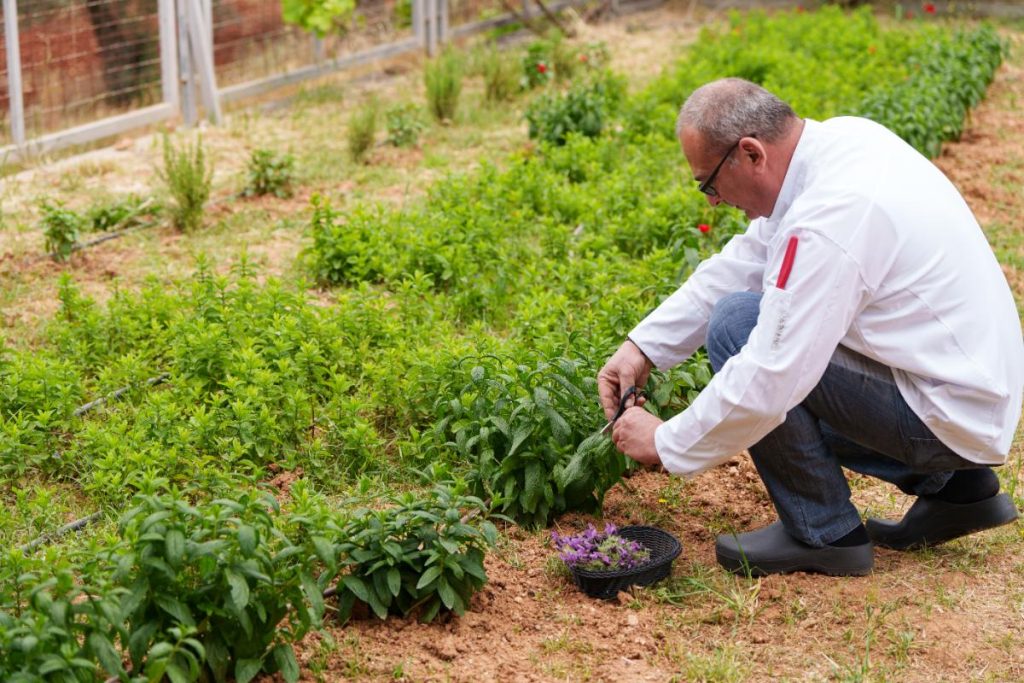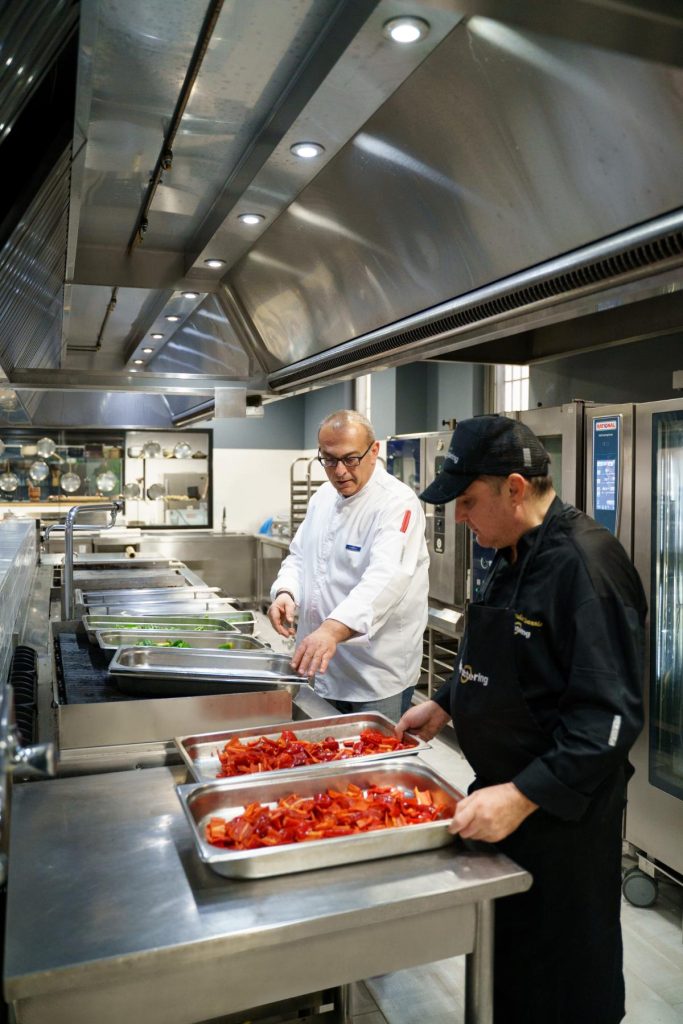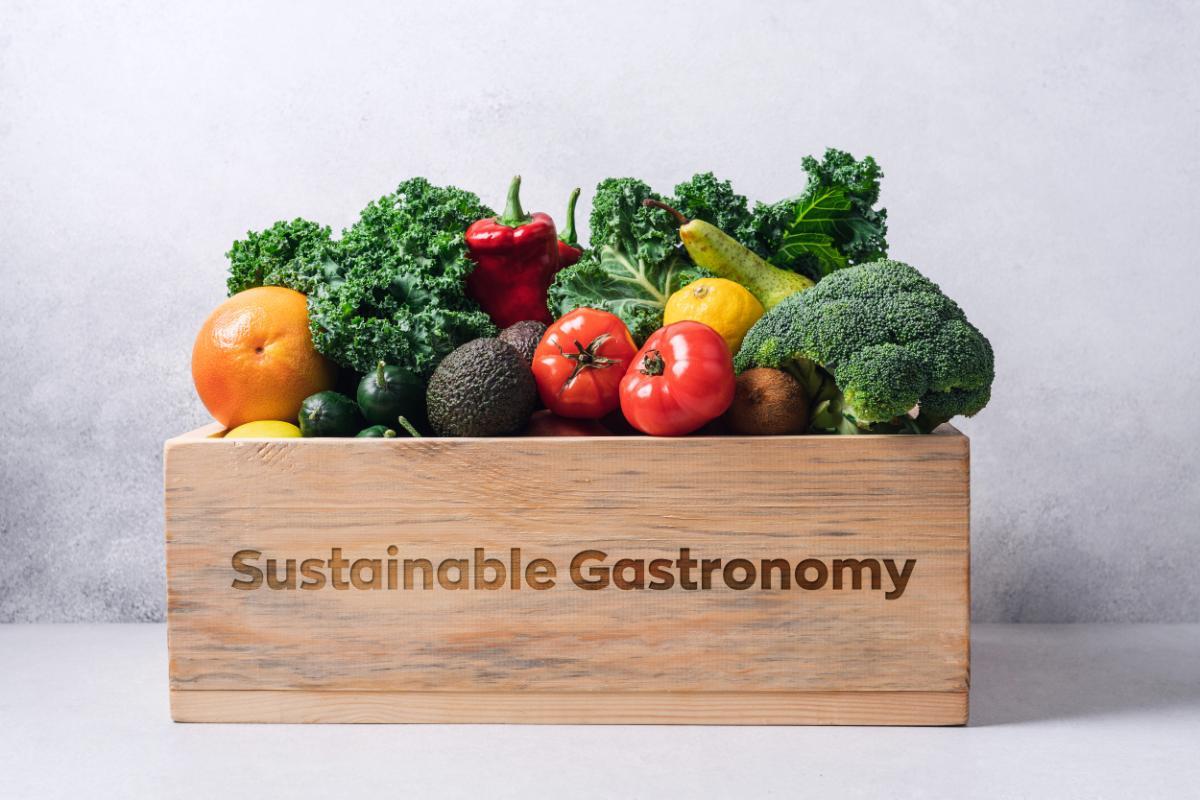On the occasion of the World Sustainable Gastronomy Day on June 18, we decided to dedicate an article to it. Because nowadays, sustainability is not just a trend, but a necessary part of our daily lives. This implies the need for practices that respect the environment and secure natural resources for future generations. In gastronomy, sustainable food is particularly important, as food production and catering affect both the environment and society.
At Intercatering we combine sustainable gastronomy with the quality of our services, emphasizing environmental awareness and reducing the ecological footprint.
But what is Sustainable Gastronomy?
Sustainable gastronomy is an approach to food and dining that considers the environmental, social and economic impact of food production, distribution and consumption. Its goal is to create a food culture that respects the environment, society and people.

The Basic Principles of Sustainable Gastronomy in Catering
- Use of Local Products: Priority is given to the use of local and seasonal materials. This not only supports the local economy but also reduces the emission of greenhouse gases from transporting the products.
- Reduction of Food Waste: Menus are designed with a view to reducing food waste. This is achieved through careful portioning and preparation of meals. In addition, unused food of high quality and nutritional value is offered to non-profit organizations, to be made available to social groups in need.
- Incorporating Vegetarian Options: Vegetarian and vegan menus are an important part of sustainable gastronomy, as plant-based food production has a smaller environmental footprint than meat production.
- Recycling: Recycling paper, plastic and glass packaging that cannot be avoided, and participation in a special cooking oil recycling program.

Benefits of Sustainable Gastronomy
- Environmental Protection: Reducing carbon emissions and protecting natural resources are key benefits of sustainable gastronomy.
- Improvement of Catering Services: Alternative menu options make it possible to support different eating habits.
- Economic and Social Support: Supporting local producers and businesses contribute to the development of the local economy while offering food to non-profit organizations supports vulnerable social groups.
- Education and Awareness: Educating staff on sustainability issues and raising customer awareness of food choices contribute to long-term changes in food production and consumption.

In summary, the transition to sustainable gastronomy is a necessary change for the future of our planet. By incorporating green practices that protect the environment, support the local economy and improve the quality of our food, we can create a healthier and more sustainable future. The awareness and cooperation of all of us are necessary to make this change a reality










